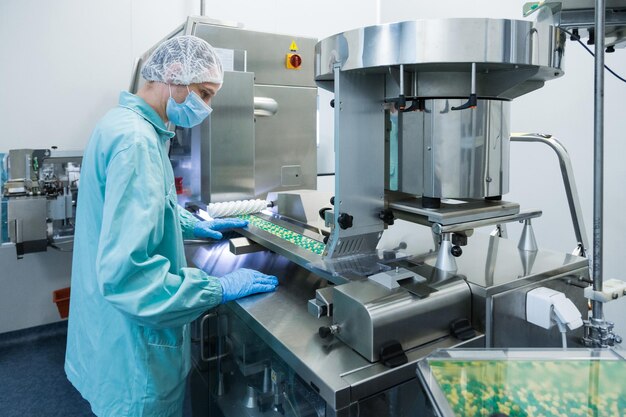
Sponsored article
In today’s fast-evolving meat processing industry, advanced machinery is playing a vital role in shaping the future. With a growing emphasis on efficiency, safety, and sustainability, businesses are turning to state-of-the-art technologies to meet the sector’s rising demands. The integration of automation, enhanced quality control systems, and sustainable practices is not only revolutionizing processes but also ensuring the industry is poised for a successful future.
In the meat processing industry, the role of automation has become increasingly critical in enhancing efficiency and reducing the reliance on manual labor. By integrating robotics and advanced control systems, companies like NOMA are at the forefront of this technological revolution. Automation offers precise control over cutting, sectioning, and packaging processes, thus significantly improving consistency and accuracy in meat production. As the global demand for meat products rises, such innovations ensure that production lines can handle high volumes with less human intervention. This transition not only accelerates production times but also minimizes the potential for human error, leading to improved product quality and safety.
Furthermore, by deploying automation solutions, meat processing facilities can optimize resource usage and reduce waste, making the industry more sustainable. Robotics are designed to adapt to various scales of production, from small batches to mass manufacturing, making them versatile tools in the quest for efficiency. The reduction in labor-intensive tasks not only enhances worker safety but also allows employees to focus on more skilled operations. As a leader in providing tailored machinery solutions, NOMA ensures that their clients have access to cutting-edge technology that meets the dynamic requirements of the modern meat processing industry, positioning them to thrive in a highly competitive market.
As the meat processing industry evolves, the role of advanced machinery and technology becomes increasingly pivotal in enhancing food safety standards. Cutting-edge technology allows for significant improvements in contamination detection, crucial for preventing foodborne illnesses and ensuring consumer confidence. Sophisticated sensors and automated systems can identify potential contaminants at an early stage, mitigating risks before they escalate into public health issues. This technological advancement ensures that meat products are thoroughly inspected and meet stringent hygiene criteria, safeguarding public health and maintaining brand integrity.
Beyond contamination detection, technology plays a vital role in refining quality control within the meat processing sector. Automated monitoring processes allow for real-time data collection and analysis, facilitating informed decision-making to ensure that products adhere to regulatory standards. The precision and efficiency offered by these technological innovations not only uphold rigorous quality control measures but also streamline operations, leading to increased productivity and reduced costs. By integrating advanced machinery, the meat industry can effectively advance food safety initiatives, aligning with modern consumer demands for transparency and trust.
Innovative machinery is at the forefront of transforming the meat processing industry by embedding sustainability at every operational stage. These advanced technologies are designed to enhance resource efficiency, ensuring that less energy and water are consumed during processing. By optimizing the usage of these essential resources, the environmental impact of meat production is significantly diminished. State-of-the-art equipment enables precise control over production parameters, which translates into more efficient processing and less reliance on manual interventions that are often wasteful and resource-intensive.
Moreover, advanced machinery plays a crucial role in waste reduction, a key component of sustainable practices. By utilizing innovative processing techniques, these machines are able to minimize by-products that traditionally ended up as waste, turning them instead into valuable co-products. This not only reduces the environmental footprint but also promotes a circular economy within the industry. Together, these advancements align with global efforts to create a more sustainable future by tackling the key challenges of waste and resource inefficiency in meat processing.